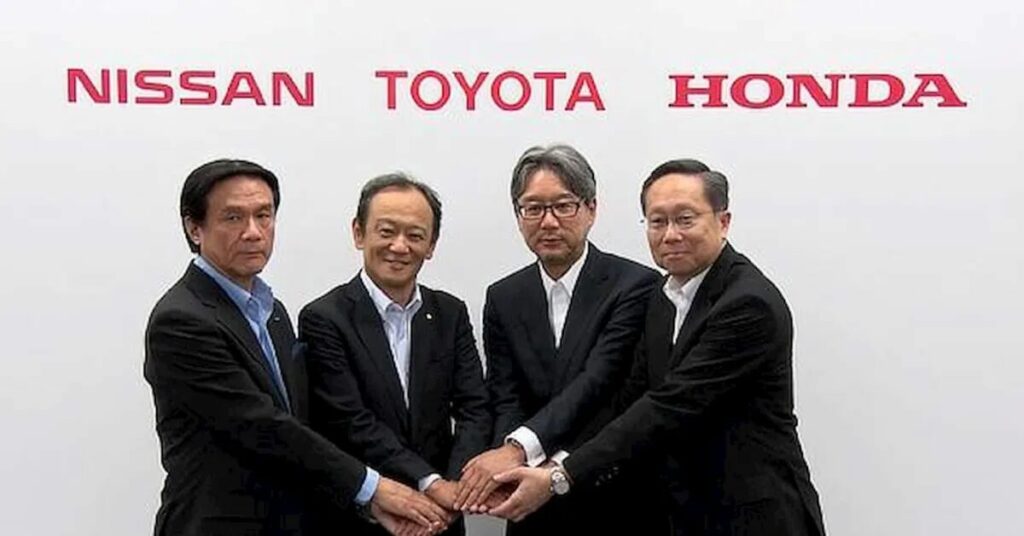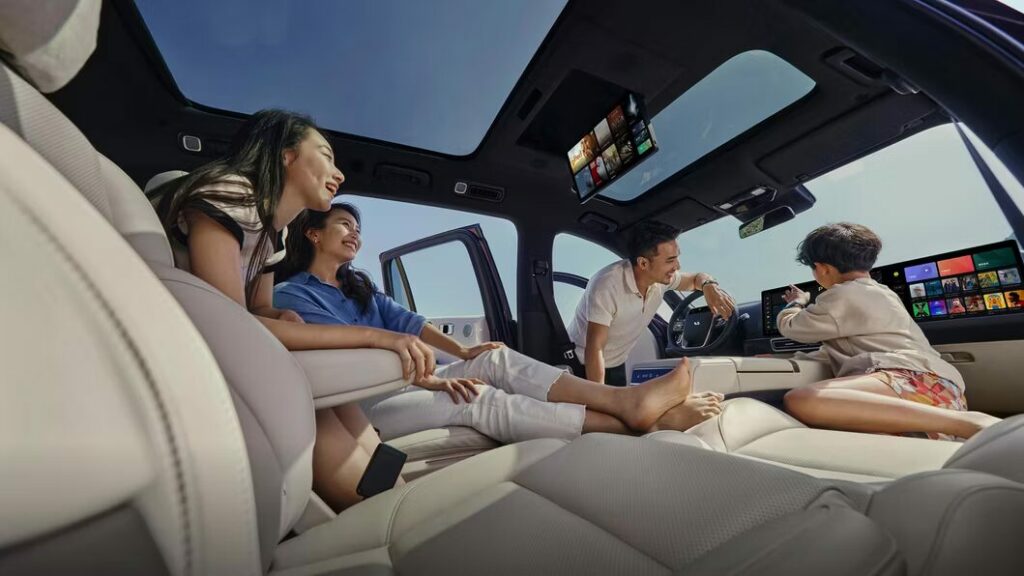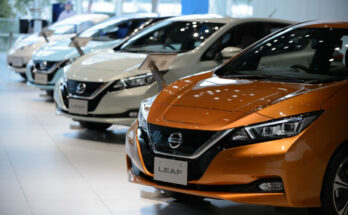Japan’s leading carmakers have vowed to collaborate on technology-driven initiatives to stay competitive in the fast-changing global automotive industry. This pledge comes as two of the nation’s largest car brands enter talks for a deal that could effectively divide the country’s industry into two major camps.
Related: Japan Finally Realizing Its Fallen Behind in the EV Race
In its 2035 road map, the Japan Automobile Manufacturers Association (JAMA) emphasized the urgent need for automakers to share resources and work together on innovations like artificial intelligence and electric vehicles. The goal is to catch up with the advanced, tech-savvy cars dominating other markets.

This push for collaboration comes at a critical moment for Japan’s automotive sector. Honda recently announced a potential deal to absorb struggling Nissan, creating a powerful alliance to rival Toyota and its network of partners, including Mazda, Subaru, and Suzuki.
Related: Japan is the Biggest Laggard in Electric Vehicles
While such a deal would reshape Japan’s domestic industry, its automakers—renowned for their reliable and efficient cars—face a common challenge: reclaiming market share lost to China, now a global leader in flashy, cutting-edge electric vehicles. According to JAMA in a statement released earlier this week:
“Japan’s car industry was once a global leader, but new technology and geopolitical instability have weakened its competitive advantage.”
Japanese automakers are also facing intense challenges in China, the world’s largest car market, where their survival is under threat from a rising wave of Chinese NEVs (New Energy Vehicles) which are also steadily expanding into Southeast Asia, a region long dominated by Japan’s legacy brands.
Related: Chinese EV Makers Challenge Japanese Dominance in Thailand’s Auto Industry
Despite some bright spots—such as Toyota benefiting from increased demand for hybrids in North America—Japanese automakers are struggling to keep pace with global shifts toward pure-electric vehicles like those from Tesla and China’s BYD. Toyota, often criticized for its slow transition from traditional gasoline-powered cars, highlights the growing gap between Japan’s models and cutting-edge EV offerings.

Rising trade tensions are adding to these challenges. Tariffs on Chinese EVs entering the U.S. and potential duties on goods from Mexico and Canada could disrupt carmakers’ strategies for North America, forcing them to adapt quickly.
Related: Carlos Ghosn Accuses Japan of Pressuring Honda Into ‘Desperate’ Nissan Merger Negotiations
Nissan’s recent troubles exemplify the struggles of Japan’s auto industry. Leading up to its announced partnership with Honda, the company reported steep profit losses, cut jobs and production, and reshuffled its leadership. The partnership, which will consolidate the two brands under a single holding company, is set to launch by August 2026, marking a significant restructuring effort in response to mounting global pressures.

Responsible for delivering local & international automotive news.




